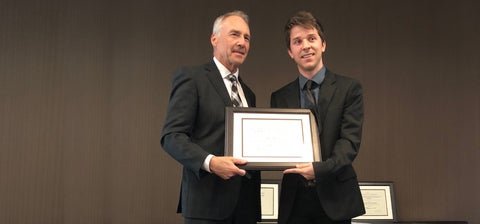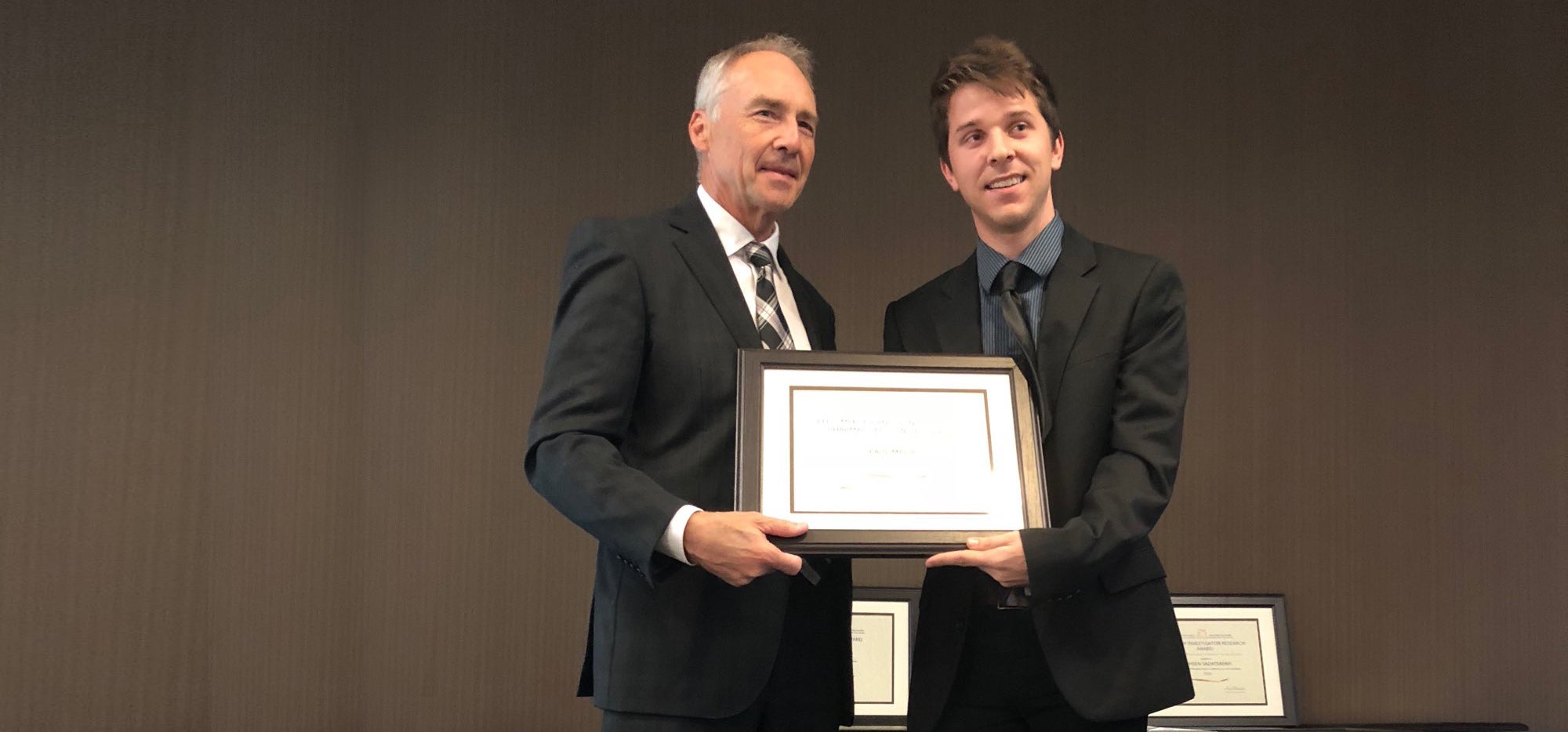
PhD candidate Paul Malik receives national pharmacy fellowship award

On June 13, Waterloo Pharmacy PhD candidate Paul Malik was recognized with an award at the Association of Faculties of Pharmacy of Canada (AFPC) conference. Malik received the AFPC/Merck Canada Inc. Post Graduate Pharmacy Fellowship Award which aims to promote the pursuit of research careers among pharmacy and graduate students.
Malik is a graduate of the PharmD program at Waterloo Pharmacy and a member of Professor Andrea Edginton’s lab group. His PhD research involves physiologically-based pharmacokinetics (PBPK), an area of study that explores how variables about the human body affect how drugs reach certain concentrations in that body. Developing mathematical PBPK models, Malik is examining the absorption, distribution, metabolism, and excretion of protein-based medications commonly used to treat children with cancer or autoimmune conditions. While factors like age, height, and body mass can significantly impact the doses required for safe and effective therapy, other maturation processes can be equally, if not more important.
We already have a good understanding about how many small molecule medications are processed by the body. But for newer large molecule medications such as biologics, we’re not as sure. My research addresses this knowledge gap by identifying the physiologic factors that we should account for when dosing large molecule drugs in children.
Large molecule medications can be made up of structures like proteins and nucleic acids. Many newer medications use these structures in the hopes of having better results than traditional small molecule drug alternatives.
Malik’s work developing PBPK models for these newer types of medications will help determine a safer starting point for medication dosing in children. He focuses on large molecule drugs called monoclonal antibodies. Malik simulates patient populations, making them vary by characteristics like weight, gender, age, and more. He’s able to test how these large molecule drugs will interact in these virtual patient populations.
“Children are an under-represented population in clinical trials meaning that drug monographs often do not have labeled doses for children,” says Professor Andrea Edginton, reflecting on the importance of work in this area. “Monoclonal antibodies (MAbs) are a relatively new treatment approach and Paul’s work focuses on developing virtual children to predict the dose exposure relationship for MAbs. This type of work is critical to plan a successful pediatric clinical trial.”
The AFPC award recognizes the value of this research and Malik’s potential as a researcher. A second year PhD student, he is currently completing a thesis and will be conducting research in collaboration with children’s hospitals in the United States. After graduation, Malik hopes to pursue an academic career in Canada.
Congratulations Paul!